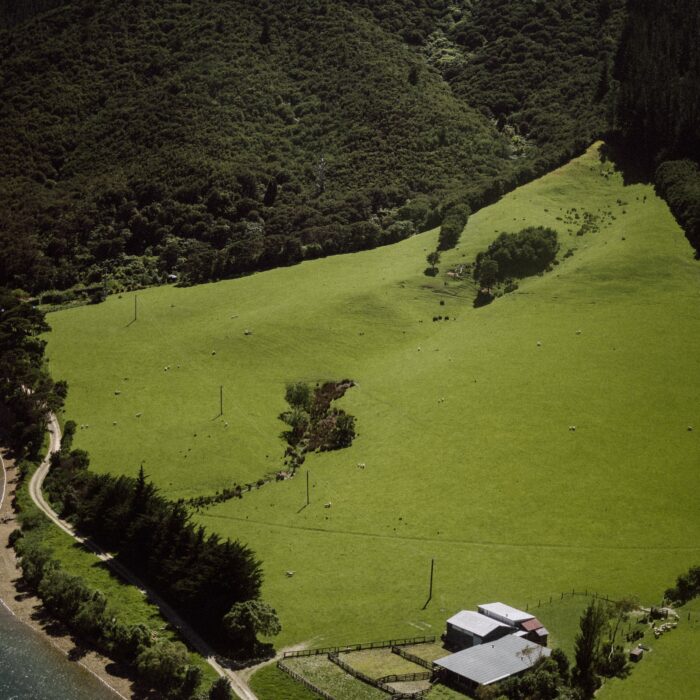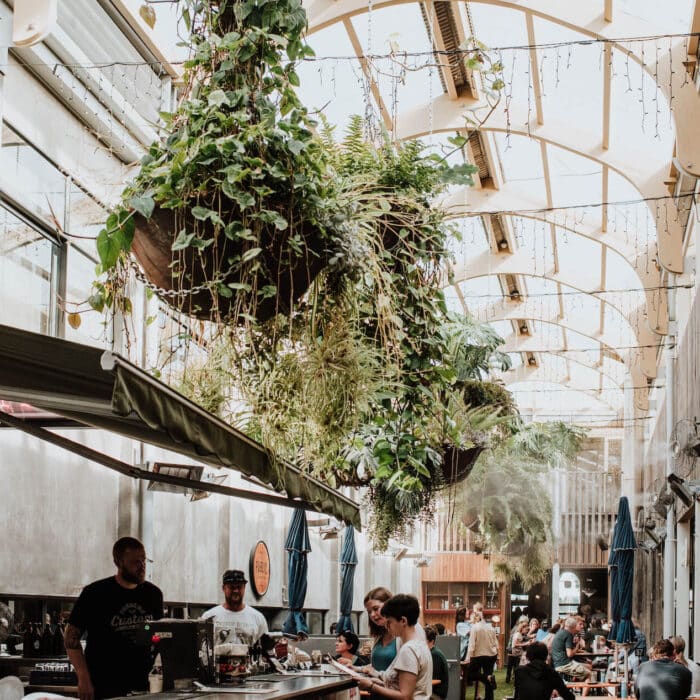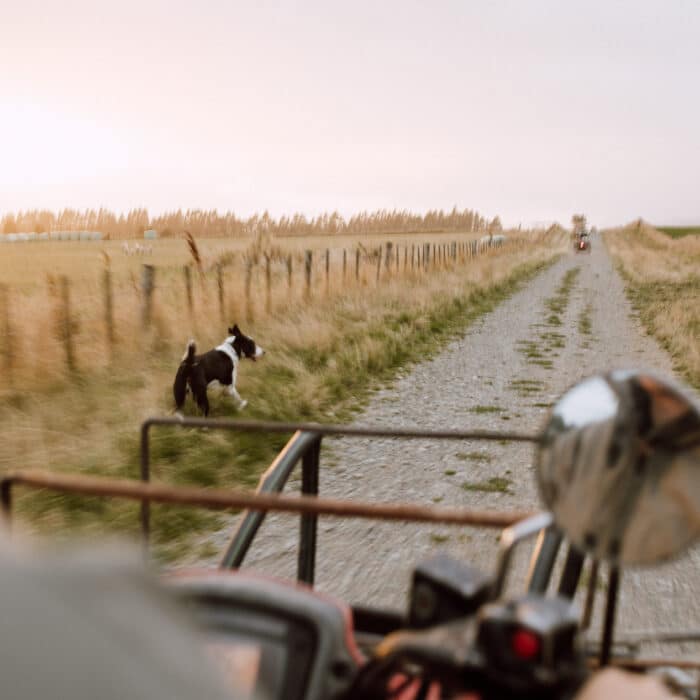15 November 2022
The Whānau Collective
Wahine Ahuwhenua. Woman of the Land.
Writer: ANNA BRANKIN (KĀI TAHU, KĀTI MĀMOE)
Photographer: FRANCINE BOER
Nukuhia Hadfield and her husband Bart have been farming sheep and beef at Mangaroa Station in Wairoa’s Ruakituri Valley for the past twenty-one years, thanks to the intergenerational farming model that has set their whānau up for success.

"It was a big cost to us to put two water systems in, but we're realising the value of that investment already," Nuku says. "We've got about 150 troughs placed at the top of two thirds of the paddocks, which means better grazing, better utilisation of those paddocks, and keeps stock out of the creeks."
Nuku and Bart were determined to increase the farm’s productivity and grow their business. Their efforts over the years have paid off, and in 2015 they won the prestigious Ahuwhenua Trophy for Māori Sheep and Beef Farmer. Nuku has become the chair of the Ahuwhenua Trophy Management Committee, which oversees the competition.
Since then, they’ve purchased two additional blocks in Gisborne. The additional land provides winter grazing at Waituhi for their lambs and, with the recent addition of the block at Ngātapa, for their cattle – meaning that Nuku and Bart, 53, can finish all their own stock, an important step in becoming completely self-sufficient. “This is the first year we’ve held onto all our weaners and will be able to finish all our own cattle,” Nuku says. “We’re really looking forward to having that whole system, from the genetics and breeding to finishing and sending them all off straight to the works.”
As Nuku and Bart continue to invest in growing their business and improving their farming practices, they are also mindful of the opportunities they want to provide for their three children – Ariana, 24, Lee, 22, and Atawhai, 20. “We’ve been in discussions with the kids about what they want to get out of farming, and what their futures hold, so the next ten years will be about transitioning them in and trying to transition ourselves out of the hill country, for a start,” Nuku says.
"So far, we've planted over 10,000 natives up here as shelter belts, and we retired about 150 hectares into native bush as part of a project with Hawke's Bay Regional Council."
Just twelve months later, in 2002, the whānau collective was able to complete the purchase of Mangaroa Station. Between that and Ruakaka, they were suddenly farming a total of 25,000 stock units. "It was really exciting - it was a lot of hard work and we had to be really disciplined. We were living on the smell of an oily rag but everyone wanted to do it, everyone had the end goal in sight," Nuku recalls.
After farming together for seven years, the whānau was eventually in a position to capitalise on the opportunities they'd created. Nuku's two brothers entered into a partnership and bought Ruakaka Station outright, while her sister and brother-in-law bought their own farm in Eketāhuna. Meanwhile, Nuku and Bart were able to purchase Mangaroa Station in 2008 and continue farming there."Although we're running our separate businesses, we still work quite closely together," Nuku says. "We have a whānau agreement with our meat company, and a whānau collective relationship with Rabobank. We're a Rabobank client so when we became bankable it was Rabobank that took us on and all four families are all still with Rabobank now. We developed really strong relationships with them. Todd Charteris, who is now the Rabobank CEO, was actually our initial bank manager, he got what we were about. They've been great. We would classify Rabobank as part of our core team."

Nuku and Bart were determined to increase the farm's productivity and grow their business. Their efforts over the years have paid off, and in 2015 they won the prestigious Ahuwhenua Trophy for Māori Sheep and Beef Farmer. Nuku has become the chair of the Ahuwhenua Trophy Management Committee, which oversees the competition.
Since then, they've purchased two additional blocks in Gisborne. The additional land provides winter grazing at Waituhi for their lambs and, with the recent addition of the block at Ngātapa, for their cattle - meaning that Nuku and Bart, 53, can finish all their own stock, an important step in becoming completely self-sufficient. "This is the first year we've held onto all our weaners and will be able to finish all our own cattle," Nuku says. "We're really looking forward to having that whole system, from the genetics and breeding to finishing and sending them all off straight to the works."
As Nuku and Bart continue to invest in growing their business and improving their farming practices, they are also mindful of the opportunities they want to provide for their three children - Ariana, 24, Lee, 22, and Atawhai, 20. "We've been in discussions with the kids about what they want to get out of farming, and what their futures hold, so the next ten years will be about transitioning them in and trying to transition ourselves out of the hill country, for a start," Nuku says.

Drawing on Nuku's own experiences with her whānau, her three children have formed their own company and purchased fourteen hectares of flat land adjacent to their parents' block at Waituhi. "So they've all got their own mortgages and they've got an asset that they're reducing debt on and building equity, so they'll be coming to the party with something," she says.
It also helps them learn about the often harsh realities of owning land and farming. In March this year, heavy rains devastated the Wairoa community, causing widespread flooding and slips that damaged roads and infrastructure. "We could only get about 200 metres down our road and then there was a slip, and we thought, 'Man, this is major,'" Nuku recalls. "Every single track around our farm was blocked and our road had at least fourteen slips on it."
For over a week, Nuku and Bart waited out the rain, using a quad bike where possible and otherwise walking to open gates to spread the stock out. When the rain stopped, Nuku says it was the kindness of their friends and whānau that got them through. "My brother and my brother-in-law came up, and our stock agent's son came over, because all the ewes needed to be dipped, and everyone's on horses because that's the only way you can get around," she says. "We got the product flown out to our satellite yards by helicopter after our local stock agent called in to see how we were doing - those sorts of things were just absolutely massive."

The recovery has been long and arduous - and it's still ongoing. The main route into Ruakituri Valley - Te Reinga Bridge - remains open to light traffic only, meaning heavy vehicles like stock trucks have to use a precarious and much longer route Nuku describes as a "goat track." Within the valley itself, the road to Mangaroa Station was closed to trucks and trailers for six weeks; other roads for even longer.
"This was over a period when farms up here are normally destocking, so we had four farms having to run their stock down to the bottom of the road - sixteen kilometres for one of them - and load it out of the neighbour's yards."
Nuku says at times the small community of Wairoa has felt overlooked, with national attention focused on areas further north affected by the same weather event, and an estimated two years to repair the bridge into the valley. "It has been very frustrating but the positive side of it is that it has brought the community together," she says.
The small and tight-knit community has been supported through the ongoing challenges by two groups - community hub Te Manaakitanga o Ruakituri and Guardians of the Ruakituri Catchment Group. The latter is a group established and chaired by Nuku, and supports farms and farmers to navigate new regulations and lead the future of the valley.
Nuku emphasises the important role that women play in building and maintaining a sense of community through groups like these. "In the past, people would ask what you do, and you might say 'Oh, I'm a farmer's wife,' but that doesn't acknowledge the amount of voluntary work and time and effort that we put in to keep our communities alive and vibrant. We're the ones that are always running the kids to sports events, keeping the playgroup going," she says. "And now that our kids are out of the school system, a couple of us have the time to run organisations like the community hub and catchment group. So now we've got these two groups running side by side, looking after the wellness of people and the wellness of our businesses."
Glossary. Manaakitanga, support. Whānau, family.
If you enjoyed this story, please share with someone else.
This story appeared in the Kōanga Spring 2022 Edition of Shepherdess.
Get your hands on a copy.
Related Stories
Two Tales of Taranaki – Erin
Whether you’re into dramatic landscapes and outdoor adventures, or gallery-hopping and a spot of boutique shopping, sunny Taranaki has something for locals and holidaymakers alike.



